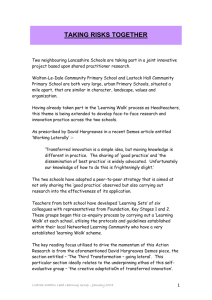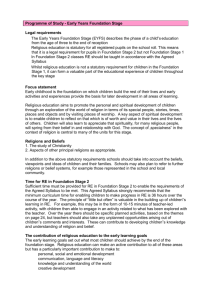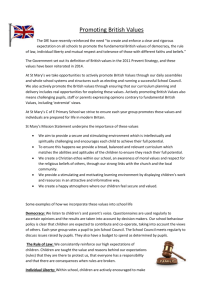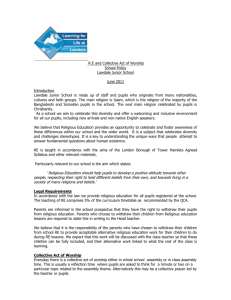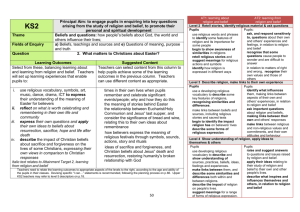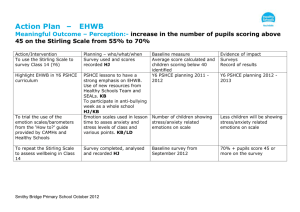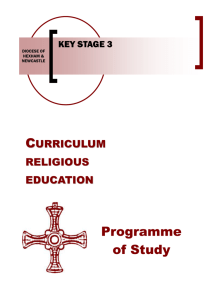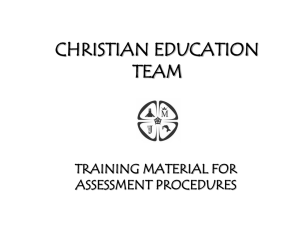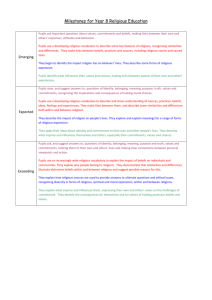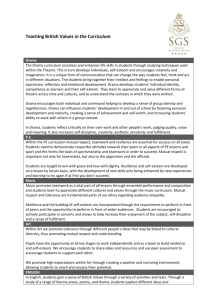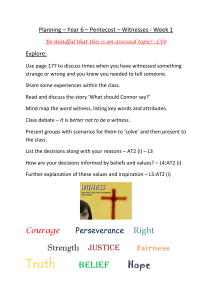R.E Policy 2015 - The Curzon Church of England Primary School
advertisement
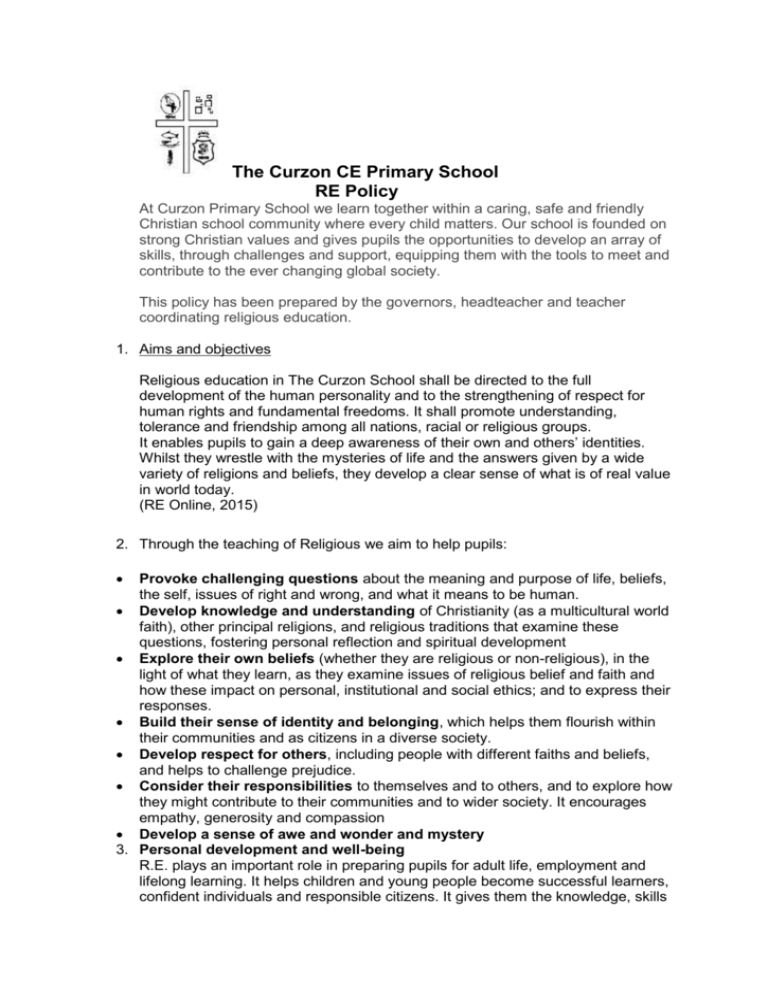
The Curzon CE Primary School RE Policy At Curzon Primary School we learn together within a caring, safe and friendly Christian school community where every child matters. Our school is founded on strong Christian values and gives pupils the opportunities to develop an array of skills, through challenges and support, equipping them with the tools to meet and contribute to the ever changing global society. This policy has been prepared by the governors, headteacher and teacher coordinating religious education. 1. Aims and objectives Religious education in The Curzon School shall be directed to the full development of the human personality and to the strengthening of respect for human rights and fundamental freedoms. It shall promote understanding, tolerance and friendship among all nations, racial or religious groups. It enables pupils to gain a deep awareness of their own and others’ identities. Whilst they wrestle with the mysteries of life and the answers given by a wide variety of religions and beliefs, they develop a clear sense of what is of real value in world today. (RE Online, 2015) 2. Through the teaching of Religious we aim to help pupils: Provoke challenging questions about the meaning and purpose of life, beliefs, the self, issues of right and wrong, and what it means to be human. Develop knowledge and understanding of Christianity (as a multicultural world faith), other principal religions, and religious traditions that examine these questions, fostering personal reflection and spiritual development Explore their own beliefs (whether they are religious or non-religious), in the light of what they learn, as they examine issues of religious belief and faith and how these impact on personal, institutional and social ethics; and to express their responses. Build their sense of identity and belonging, which helps them flourish within their communities and as citizens in a diverse society. Develop respect for others, including people with different faiths and beliefs, and helps to challenge prejudice. Consider their responsibilities to themselves and to others, and to explore how they might contribute to their communities and to wider society. It encourages empathy, generosity and compassion Develop a sense of awe and wonder and mystery 3. Personal development and well-being R.E. plays an important role in preparing pupils for adult life, employment and lifelong learning. It helps children and young people become successful learners, confident individuals and responsible citizens. It gives them the knowledge, skills and understanding to discern and value truth and goodness, strengthening their capacity for making moral judgements and for evaluating different types of commitment to make positive and healthy choices. See also PSHCE policy. Community cohesion R.E. makes an important contribution to a school’s duty to promote community cohesion. It provides a key context to develop young people’s understanding and appreciation of diversity, to promote shared values and to challenge racism and discrimination. It provides a positive context within which the diversity of cultures, beliefs and values can be celebrated and explored. RE also provides opportunities to investigate patterns of diversity of religion and belief and forge links with different groups in the local area. R.E. subject matter gives particular opportunities to promote an ethos of respect for others, challenge stereotypes and build understanding of other cultures and beliefs. This contributes to promoting a positive and inclusive school ethos that champions democratic values and human rights. See also PSHCE policy. 4. The school’s approach to teaching R.E. R.E. within the school is treated as a core subject and has a vital part to play as part of a broad, balanced and coherent curriculum to which all pupils are entitled. R.E is delivered as a discrete weekly lesson for each year group. In order to make religious education a lively, active subject we employ a variety of cross curricular teaching methods including art, music, discussion, the development of thinking skills, drama, the use of artefacts, pictures, stories, and the use of periods of stillness and reflection. Where possible we want our pupils to have opportunities to encounter local faith communities through visits to local places of worship or visits from members of local faith communities. 5. Assessment and Recording of RE Assessment of R.E is conducted informally during lessons using observations and marking of children’s work against learning outcomes and success criteria. At the end of each unit, a summary judgement is made in relation to the National Curriculum and descriptors from the Derbyshire Agreed Syllabus. These are then recorded and used to inform future planning and monitored by the subject coordinator. Attainment in R.E is monitored through analysis of this data, lesson observations, link governor learning walks, work sampling and through pupil dialogue. This information will feed into the Church school self-evaluation process. (SIAMS) The right of Withdrawal from RE At Curzon Primary School we are an inclusive community but recognise that parents, of course, have the legal right to withdraw their children religious education on the grounds of conscience. Date of adoption/review Signed Governors Sighned Headteacher Signed Coordinator April 2015 April 2016 April 2017




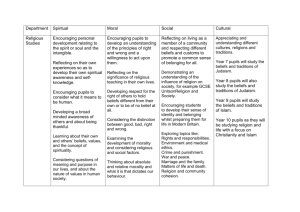

![afl_mat[1]](http://s2.studylib.net/store/data/005387843_1-8371eaaba182de7da429cb4369cd28fc-300x300.png)
